JORDAN the Dawn of Civilization
Jordan is a land steeped in history. It has been home to some of mankind's earliest settlements and villages, and relics of many of the world's great civilizations can still be seen today. As the crossroads of the Middle East, the lands of Jordan and Palestine have served as a strategic nexus connecting Asia, Africa and Europe. Thus, since the dawn of civilization, Jordan's geography has given it an important role to play as a conduit for trade and communications, connecting east and west, north and south. Jordan continues to play this role today.
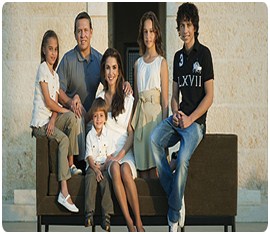
The Hashemite Kingdom of Jordan
It is s a constitutional monarchy with representative government. The reigning monarch, His Majesty King Abdullah II, is the head of state, the chief executive and the commander-in-chief of the armed forces.
The King exercises his executive authority through the prime minister and the Council of Ministers, or cabinet. The cabinet is responsible before the elected House of Deputies which, along with the House of Notables (Senate), constitutes the legislative branch of the government.
Modern Jordan was founded by King Abdullah I after World War I. It was ruled by his grandson, The Late King Hussein, for 46 years until his death in 1999, when his son King Abdullah II assumed the throne. Jordan has grown into a modern nation which has enjoyed a remarkable measure of peace, stability and economic growth in recent decades.
Modern Jordan is classified as a country of "high human development"(by the 2010 Human Development Report).and an emerging market with a free market economy (by the CIA World Fact Book). Jordan has an "upper middle income" economy. Free Trade Agreement (FTA) with the United States went into effect in December, 2001 phased out duties on nearly all goods and services between the two countries. Jordan has also enjoyed "advanced status" with the European Union since December 2010, as well as being a member of the Euro-Mediterranean free trade area. Jordan has more Free Trade Agreements than any other country in the region. It has close relations with the United States and the United Kingdom, and became a major non-NATO ally of the United States in 1996. Jordan is a founding member of the Arab League, and the Organisation of Islamic Cooperation (OIC). Jordan was invited to join the Gulf Cooperation Council (GCC). Jordan was the first Arab and Middle Eastern state to join the International Criminal Court. The Jordanian Government is one of three members of the 22 Arab League states to maintain diplomatic relations with Israel, the others being the Egyptian and Palestinian governments.
The Hashemite Kingdom of Jordan, which once captivated ancient travelers
Continues to enthrall a whole new generation as a modern & vibrant nation
It is a land of mesmerizing beauty and contrasts.
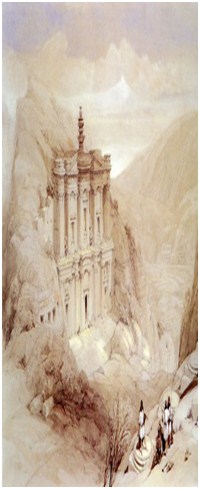
Ancient Jordan
The most prominent early roots of Jordan, as an independent state, can be traced to the Kingdom of Petra, which was founded by the Nabataeans (Arabic: الأنباط, Al-Anbāt) an ancient Semitic people from Arabia who developed the North Arabic Script that evolved into the Modern Arabic script.
The King exercises his executive authority through the prime minister and the Council of Ministers, or cabinet. The cabinet is responsible before the elected House of Deputies which, along with the House of Notables (Senate), constitutes the legislative branch of the government.
The region of present-day Jordan has been conquered successively by the Persian Empire, the Seleucids (4th cent. BC), Romans (mid-1st cent. AD) and Muslim Arabs (7th. cent.), During its glory, the Nabataeans Kingdom controlled regional trade routes by dominating a large area southwest of the fertile crescent, which included the whole of modern Jordan extending from Syria in the North to the northern Arabian Peninsula in the south.
As a result, Petra enjoyed independence, prosperity and wealth for hundreds of years until it was absorbed by the emerging Roman Empire.
Jordan also had witnessed many other smaller ancient kingdoms, in addition to the Nabataeans. These included the Kingdom of Edom, the Kingdom of Ammon and the Kingdom of Moab, which are all mentioned in the Bible and other ancient Near Eastern documents during the Greco-Roman period of influence, a number of semi-independent city-states also developed in Jordan under the umbrella of the Decapolis including: Gerasa (Jerash), Philadelphia (Amman), Raphana (Abila), Dion (Capitolias), Gadara (Umm Qays), and Pella (Irbid).
Later, Jordan became part of the Arabic Islamic Empire across its different Caliphates stages including Rashidun Empire, Umayyad Empire and Abbasid Empire. After the decline of the Abbasid, Jordan was ruled by several conflicting powers including the Mongols, the Crusaders, the Ayyubids and the Mamluks until it became part of the Ottoman Empire in the 16th century.
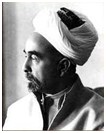
Modern Jordan
With the break-up of the Ottoman Empire at the end of World War I, the League of Nations and the occupying powers chose to redraw the borders of the Middle East. The ensuing decisions, most notably the Sykes–Picot Agreement gave birth to the French Mandate of Syria and British Mandate of Palestine. More than 76% of the British Mandate of Palestine was east of the Jordan River and was known as "Transjordan", the country was called "Transjordan", under British supervision until after World War II. In 1946, the British requested that the United Nations approve an end to British Mandate rule in Transjordan. Following this approval, the Transjordanian Parliament proclaimed
King Abdullah I as the first ruler of the Hashemite Kingdom of Transjordan.
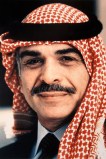
King Hussein bin Talal (1935-1999)
His Majesty King Hussein bin Talal, the father of modern Jordan, will always be remembered as a leader who guided his country through strife and turmoil to become an oasis of peace, stability and moderation in the Middle East. Among Jordanians, his memory is cherished as the inspiration for Jordan's climate of openness, tolerance and compassion. Known as Al-Malik Al-Insan ("The Humane King"), King Hussein established a legacy which promises to guide Jordan for many years to come.
His Majesty
King Abdullah II assumed his constitutional powers as monarch on 7 February 1999. Following the leadership legacy of his father, the late King Hussein,
JUST THE FACTS
Borders
The Hashemite Kingdom of Jordan is a relatively small country situated at the crossroads of the Middle East. Comprising some 92,300 square kilometers (57,354 squares miles), it is bordered on the north by Syria at the east by Iraq, and by Saudi Arabia on the East and South. Also, to the south one finds the Gulf of Aqaba and the Red Sea, while Israel and Palestine lie to the west. Jordan’s diverse terrain and landscape belay its actual size, demonstrating a variety usually found only in large countries. Iraq 181 km, Israel 238 km, Saudi Arabia 744 km, Syria 375 km, West Bank (Palestine) 97 km.
Geography
The Dead Sea is to the northwest and the Red Sea to the southwest. A high plateau extends 324 km from Syria to Ras en Naqab in the south with the capital of Amman at a height of 800m. Northwest of the capital, are undulating hills, some forested, others cultivated. The Dead Sea depression, 400m below sea level in the west, is the lowest point on earth. The River Jordan connects the Dead Sea with Lake Tiberia (Israel). To the west of Jordan is the Palestinian National Authority Region. The east of the country is mainly desert, Jordan has a small stretch of Red Sea coast, centred on Aqaba.
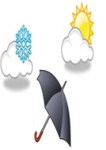
Weather
Jordan has a Mediterranean climate with warm summers and cool winters. The hottest temperatures in Jordan reach in the 80-90s degrees Fahrenheit. The country's long summer reaches a peak during August. January is usually the coldest month. The fairly wide ranges of temperature during a twenty-four-hour period are greatest during the summer months and have a tendency to increase with higher elevation and distance from the Mediterranean seacoast. Daytime temperatures during the summer months frequently exceed 29 °C and average about 32 °C. In contrast, the winter months — September to March — brings moderately cool and sometimes very cold weather, averaging about 3.2 °C. Frost is fairly common during the winter; it may take the form of snow at the higher elevations of the north western highlands. Usually it snows a couple of times in winter in western Amman.
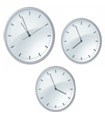
Local time
October – March: Greenwich Mean Time plus 2 hours (G.M.T. + 2).
April – September: Greenwich Mean Time plus 3 hours (G.M.T. + 3).
Jordan is seven hours ahead of US Eastern Time.
Language
Arabic is the official language of Jordan. English is widely understood among most Jordanians, although the degree to which varies with educational level and demographic concentration. Middle and upper class citizens tend to be fluent and consider English as their second language.
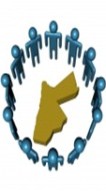
Religion & Ethnic
Sunni Muslim 92% (official), Christian 6% (majority Greek Orthodox, but some Greek and Roman Catholics, Syrian Orthodox, Coptic Orthodox, Armenian Orthodox, and Protestant denominations), Other 2% (several small Shia Muslim and Druze populations) (2001 est.), Arab 98%, Circassian 1%, Armenian 1%
Population
The population of Jordan has grown rapidly over the last fifty years or so to 6,508,271 with 2,842,629 million living in the capital, Amman. a growth rate of 0.984% (July 2011 Est.)
Urban population: 79% of total population (2010)
Age structure
0-14 years: 35.3% (Male 1,180,595/Female 1,114,533) , 15-64 years: 59.9% (Male 1,977,075/Female 1,921,504) , 65 years and over: 4.8% (Male 153,918/Female 160,646)

Business Hours
Friday is the weekly holiday. Banks, government offices and most businesses are closed on Saturdays as well. Many businesses, including airline offices, travel agencies and some shops also close on Thursday afternoon, although department stores and supermarkets remain open. A few businesses and shops close for some of Sunday as well.
| Banks |
08.30-15.00 |
| Business Offices |
08.30-13.00 & 15.30-18.30 |
| Government Offices |
08.00-15.00 |
| Shops |
Flexible but typically 09.30-13.30 & 15.30-18.00 |
Please note that earlier closing times apply during the month of Ramadan.

Currency
The local currency is the Jordanian Dinar, symbol JD, also pronounced as “jaydee.” There are 1, 5, 10, 20 and 50 JD notes. The dinar is divided into 100 piaster’s (pronounced “pee-asters”) of 1000 fills (“fills”). The Fils is the unit most commonly used and you will usually see prices written as 4,750
(Which is 4 JD and 750 fills). Currency can be exchanged at major banks, exchange booths and at most hotels. Street money-changers are best avoided. Exchange rates are set daily by the Jordanian Central Bank.

Shopping
Wherever you go in Jordan you will find plenty of opportunities to shop. For visitors there is a wide range of locally made handicrafts and other goods available at all the popular sites, as well as within the boutiques of the leading hotels and at the various visitors' centers. There you will find hand-woven rugs and cushions, beautifully embroidered items and clothing, traditional pottery, glassware, silver jewelry embedded with semi-precious stones, Bedouin knives, coffee pots, narghiles (hubble bubble), marquetry work, antiques and other artcracts. The list is endless and about as varied as you can imagine. In all cases, the shopkeepers are helpful and friendly. Most speak at least a little English but even if they don’t, there is usually someone around who will only be very willing to assist you. After all, this is Jordan!

Electricity
220 AC volts, 50 cycles, requiring rounded two-prong wall plugs, visitors from the US will need a transformer, which most hotels can provide.

Education
The literacy rate in Jordan is 93%. The education system has been significant in the shift from a predominantly agrarian country to an industrialized nation. It ranks number one in the Arab World and is one of the highest in the developing world. UNESCO ranked Jordan's education system 18th worldwide for providing gender equality in education. 20.5% of Jordan's total government expenditures goes to education compared to 2.5% in Turkey and 3.86% in Syria. Jordan ranked 14th out of 110 countries for the number of engineers and scientists according to the Global Competitiveness Report 2004–2005 (WEF). Jordan has a higher proportion of university graduates in technological fields than any other Arab country. There are over 200,000 Jordanian students enrolled in universities each year. An additional 20,000 Jordanians pursue higher education abroad primarily in the United States and Great Britain. There is a primary school enrollment rate of 98.2% in Jordan. Secondary school enrollment has increased from 63% to 97% of high school aged students in Jordan and between 79% and 85% of high school students in Jordan move on to higher education, an extremely high rate for a middle income nation. According to the Global Innovation Index 2011, Jordan is the 3rd most innovative economy in the Middle East, only behind Qatar and the United Arab Emirates. Worldwide, Jordan ranked 41st beating India, South Africa, Greece and Russia. Jordan is the top contributor among all Arab countries in terms of internet content. 75% of all Arabic online content originates from Jordan. In scientific research, Jordan is ranked number one in the Arab world and 30th worldwide. Nature Journal reported Jordan having the highest number of researchers per million people among all the 57 countries members of the Organization of Islamic Cooperation (OIC); the average of OIC countries is 500 researchers per million people.
In Jordan there are 2,000 researchers per million people, higher than Israel and the United Kingdom. The illiteracy rate in Jordan was 6.9% in 2010, one of the lowest in the region. Secondary education consists of two years of school study, for students who have completed the 10-year basic cycle. It comprises two major tracks: Academic or vocational secondary education. At the end of the two-year period, students sit for the general secondary examination (Tawjihi) in the appropriate branch and those who pass are awarded the Tawjihi (General Secondary Education Certificate). The academic stream qualifies students for university entrance, whereas the vocational or technical type qualifies for entrance to Community colleges or universities or the job market, provided they pass the two additional subjects. Vocational secondary education provides intensive vocational training and apprenticeship, and leads to the award of a Certificate. This type of education is provided by the Vocational Training Corporation, under the control of the Ministry of Labor / Technical and Vocational Education and Training Higher Council. After completing the 8, 9 or 10 years of basic education, Jordanians are free to choose any foreign secondary education program instead of the Tawjihi examinations (8 for IGCSE, 10 for SAT and IB). Such programs are usually offered by private schools. These programs include: IGCSE, SAT and International Baccalaureate. Private schools in Jordan also offer IGCSE examinations. About 25% of school-aged students in Jordan are enrolled in private schools. Upon graduation, the ministry of Higher Education, through a system similar to UK tariff points, transforms the grades/marks of these foreign educational programs into the same marks used in grading Tawjihi students. This system is controversial, both as to the conversion process and the number of places allocated to non-Tawjihi applicants
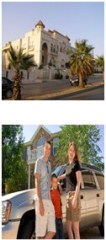
Standard of Living
Jordan is ranked as having a superior standard of life in comparison to the region and developing countries as a whole. Jordan ranked as having the 11th highest standard of living in the developing world and the second highest standard of living in the Arab and Muslim World as measured by the Human Poverty Index-2. Decades of political stability and security and strict law enforcement make Jordan one of the top 10 countries worldwide in security.[36] In the 2010 Newsweek "World's Best Countries" list, Jordan ranked as the third best Arab country to live in (53rd worldwide), after
Kuwait and the
United Arab Emirates. Globally, it ranks higher than
China and
South Africa. According to the index, its standard of living is on par with
Turkey and
Argentina. In addition, Jordan is one of the most liberal countries in the Middle East with a pro-secular government. In the 2010 Human Development Index, Jordan was placed in the "high human development" bracket and came 7th among Arab countries, behind the oil-rich states and one place behind
Tunisia. In the HDI index score excluding income, Jordan came in second in the Arab world, higher than most of the affluent
Persian Gulf states, showing the huge emphasis the Jordanian government has placed on human capital in its development process. Furthermore, in the
Inequality-adjusted HDI, Jordan came first among all the Arab countries showing that the average Jordanian was better off than the average citizen of any Arab country listed in the index. The 2010 Quality of Life Index prepared by International Living Magazine ranked Jordan as having one of the highest quality of life in the Arab world and North Africa. Jordan ranked second in the MENA with 55.0 points after Israel and followed by Kuwait with 54.47 points,
Morocco with 54.45 points and
Lebanon with 54.3 points. Only 1.6 percent of Jordanians earn less than $2 a day, one of the lowest rates in the developing world and the lowest among the Arab states, according to the UN Human development Report